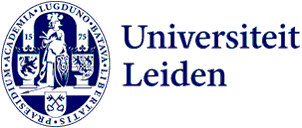
Jeroen Touwen, board member of Campus The Hague: 'We are one university in two cities'
The train to The Hague holds no secrets for Jeroen Touwen anymore. Since October, the Vice-Dean of the Faculty of Humanities has been part of the board of Campus The Hague. One day a week, together with Jan Crijns (Professor of Criminal Law and, as of February 15, Vice-Dean of the Law Faculty), he oversees the education portfolio. 'We could well have the opening of the academic year in The Hague.'
'Traditionally, each faculty has its own buildings and location, but in The Hague, we share facilities,' Touwen explains. 'The CDH board was established to manage this effectively. On the one hand, we coordinate the different processes, and on the other hand, we drive the activities we want to develop in The Hague.'
City connection
The connection with the city is one of the focal points of the board. 'You see that connection, for example, in an initiative like Buurtlab 070, where researchers and students collaborate with residents of The Hague to find solutions in the areas of climate, sustainability and biodiversity,' says Touwen. 'This kind of access to the city is very valuable. Urban Studies students in particular can immediately put into practice or test the knowledge they have acquired.'
In addition to the existing city workplace and the thesis workplace in The Hague Southwest, efforts are being made to establish a PLNT in The Hague, where students have the opportunity to build a business. Furthermore, the new education building on Spui is set to open in September 2025. 'It will be a very vibrant place,' Touwen expects. 'We can accommodate new programmes there, such as the new humanities Digital Media and Society master’s track, part of the MA in Media Studies.'
Reducing the distance
Unlike in Leiden, humanities students in The Hague are always surrounded by students from other faculties. 'We want to make sure that they don't feel like guests at FGGA and that certain facilities, for example, are not open to them,' says Touwen. The Hague is the ideal place to work effectively on the priority in the University Strategic Plan of engaging more in interdisciplinary work.'
Touwen has certainly found his place in The Hague. 'It has its own special atmosphere with all the international students and interdisciplinary research,' he says. 'I look forward to distributing our activities better between Leiden and The Hague. Why not have the opening of the academic year here? Even the university's Dies Natalis celebration could take place in The Hague, which would be a nice statement.' For those alarmed by the idea of travelling to far-off The Hague, Touwen has a reassuring message: 'The more you go back and forth, the shorter the distance becomes.'
